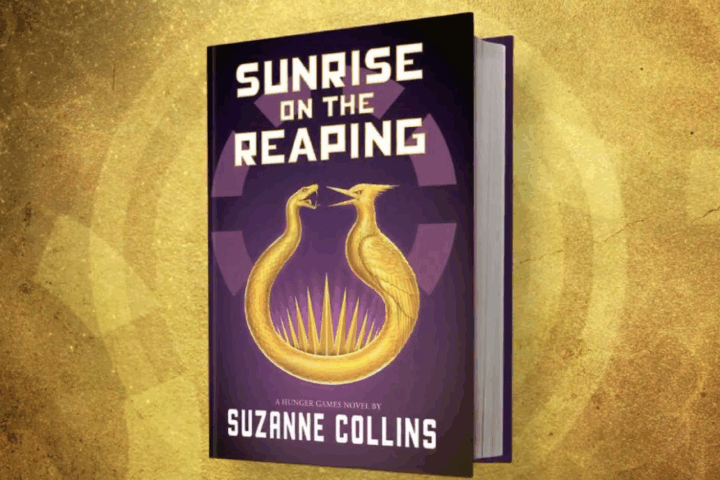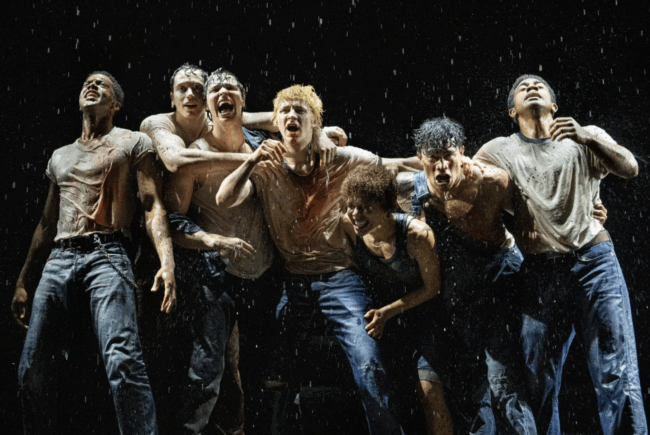Cover photo courtesy of ABC News
Propaganda is defined as, “information, especially of a biased or misleading nature, used to promote or publicize a particular political cause or point of view.” Propaganda is known to be used during times of war since a victory or defeat can greatly depend on the country’s support. The purpose of propaganda is to manipulate other people’s beliefs, actions, or attitudes through altering information or the use of symbols. People who promote propaganda, known as propagandists, have specific goals, and to achieve them they choose facts, and arguments, and deliberately display symbols that present them or their community in a way that is most effective. Propaganda has been dated back to 515 BC, when the Behistun Inscription detailed the rise of Darius I to the Persian throne and is viewed as an early example of propaganda. Today we can see its use in the Russian War as Putin’s propagandists, disinformation experts and spin doctors distort their information to justify their invasion. Coincidentally, the term propaganda associated with the agitation was first used by the Marxist Russian theorist Georgy Plekhanov and elaborated upon by Vladimir Ilich Lenin. The dystopian novel, 1984, by George Orwell, is a novel that follows the life of Winston Smith, who is a member of ‘the Party’ dissatisfied by the eyes of the party whose leader is known as Big Brother, a form of a dictator. Orwell once said, “ All propaganda is lies, even when one is telling the truth.” He is suggesting that under all the truth that one may tell, in times of fight, everyone is essentially lying and promoting propaganda. The political lifestyle is to create lies that sound truthful and destroy any other narratives.
To get a clearer perspective on the propaganda going on in Russia as well as the west, we turned to a professor in the Julien J. Studley Graduate Programs of International Affairs at The New School, Nina Khrushcheva. Nina, is the editor of and contributor to the Project Syndicate: Association of Newspapers Around the World. In the early 2000s, Khrushcheva was a member at the World Policy Institute where she organized the Russia Project. Her articles were published in the Forgein Policy, The New York Times, The Wall Street Journal, The Financial Times, and other newspapers. She is the author of a prominent book called Imagining Nabokov: Russia Between Art and Politics.
Nina was born in 1964 in Moscow, Russia and is the great granddaughter of former Soviet Premier Nikita Khrushchev, whose presence once loomed large in Russian, Communist, Soviet and American affairs Nikita Khrushchev was born on April 17, 1894 in Kalinovka, Russia during the Soviet Union. He was the first secretary of the Communist Party of the Soviet Union from 1953-1954, and the first, what is referred to as today, prime minister of the Soviet Union whose policy of de-stalinization had worldwide consequences throughout the communist world. He was active in forgein affairs in which he urged a policy of “peaceful coexistence” with the capitalist West. In 1925, he went to work full time as a party secretary of the Petrovsko-Mariinsk district ofYuzovka. He made himself seen through his diligent work and knowledge of factory conditions. He became in touch with Joseph Stalin’s close acquaintance, Lazar M. Kaganovich, who was the secretary general of the Ukrainian Party’s Central Committee. Four years later, in 1929, he received permission to study in Moscow at the Stalin Industrial Academy focusing on the field of technology and science. During the early 1930s, he monitored the construction of the Moscow subway for which the Order of Lenin in 1935. That same year he became first secretary of the Moscow city and regional party organization and in the following year he was elected a full member of the 70-man Central Committee of the Communist Party of the Soviet Union. After years of experience working with the Soviet government and helping Ukrainian nationalists movements, Stalin’s death in 1953 took a turn in Khrushchev’s work in the political field. The death of Stalin and execution of the state security chief, Lavrenty Beria, Khrushchev gained an inclusive margin from his control of the party machinery. A year later, Khrushchev had been able to improve the Stalinist security apparatus by making it subservient to the party’s leadership.
On February 25, 1956, Khrushchev delivered his famous speech during the 20th Party Congress in Moscow, where he discussed the overabundance of Stalin’s one-man rule. During his speech, he attacked the late Soviet rulers, “intolerance, his brutality, his abuse of power. By getting rid of the oppressive face of Stalinism and the horror inflicted on the populatio, inspired him to create a new intellectual ferment and ideas for the hope of freedom among students, intellectuals and the people. His movements came with revolts, disagreements and a close call of impeachment from the Soviet Communist Party.
When in power, Khrushchev established a new policy of “Reform Communism ” in an attempt to humanize the Soviet system by stressing the production of consumer goods opposing Stalinist emphasis on heavy industry. As the popularity of missile buildups started happening, Khrushchev was involved in removing the missiles if the United States promises to make no further attempt to overthrow Cuba’s communist government.
On October 14, 1964, Leonid Brezhnev, the Central Committee, agreed to accept Khrushchev’s request to retire from his position as the party’s first secretary and chairman of the Council Ministers of the Soviet Union. After years of altering the communist system, Khrushchev retired leaving a huge impact on the people and changed the way of life in the Soviet Union, now Russia.
It’s been a long road from Krushchev to Putin. Currently, Russia’s situation revolving around the media is dangerous. The limitation on what is allowed to be reported on the server and the accessibility to any independent outlets are blocked. Although difficult, it is still possible to obtain blocked information in Russia. Television is the source of the news for Russia, and like any other country, the media is controlled by the government, the Kremlin, and promotes loads of war propaganda. BBC, writes that in the news that Ukraine “shell their own cities, and Russian troops are presented as liberators.” As the Kremlin controls the Russian media, the citizens are inclined to watch and be caught up, leading them to believe the Kremlin’s perspective. Social media platforms like Facebook, Instagram, Twitter and most independent news websites have been blocked or restricted from being used by the people. Russian stories are not that different from any country’s propaganda that we have never seen before, particularly during the era of the Soviet Union in the 1930s, Stalin promoted more propaganda than other times. From Stalin, Russia continued their legacy of propaganda but as Nina says, it’s “not original or interesting in that matter.”
The only stories that circulate in the Russian media is the story put forward by the Ministry of Defence, that is the proprgrana doesn’t mean the information is incorrect, but the only option of “truth” making everything else fake news. The Kremlin is rapidly closing the free flow of information for Russia as the tensions of the war with Ukraine continues.
On March 21, Russia banned the parent company of Facebook and Instagram, Meta, for “extremist activities” but making an exception for the commonly used form of communication for Russians, WhatsApp. Reports that Russia fully discontinued the use of Twitter, was on March 4. Authorities under the Russian government have restricted access to Twitter under a federal law monitoring riots, extremism, protests and spread of false information. The popular app, TikTok, has been completely banned and no longer lets people in Russia post new material after passing a law criminalizing what they perceive as “false information” about the invasion.
A new law was established in the prevention of users in Russia from posting, the law states that people can face up to 15 years in prison for spreading information that contradicts the Kremlin official narrative about Ukraine. Attention is focused on words like “war” and “invasion” which would give incentive to the government to arrest people who post TikTok or use those trigger words. Furthermore, Russians are allowed to watch videos and communicate through the app but are prohibited to post their own videos and it is unclear whether this rule will be lifted in the near future.
Other platforms such as Youtube and Telegram are still running and available for the citizens to use as well as communicate to outside countries. Similar to China, the Kremlin is banning websites and platforms by turning them into virtual private networks, VPNs, to access blocked social media networks and new websites.
The invasion didn’t stop the pro-Moscow social media accounts from posting and promoting biased opinions. Russian online propagandists had a more specific job as the invasion started brewing in February. Russia tried to lay a foundation for “impending action [and] inflecting its claims for specific audiences on particular platforms.” The government, continuing their expertise in creating propaganda, created information campaigns for its domestic population, citizens of Ukraine, “far-afield observers,” readers in the West. By spreading this information they used a combination of state media and fake accounts to convince all the audience of the righteousness behind Putin’s motive “as well as the perfidy and veritable Nazism of the ““Ukrainian regime.””
The invasion of Ukraine has stirred up controversy in America, not only about how the United States should respond but the threat the invasion had on democracy. With Nina’s opinion in consideration, research by the University of Maryland Critical Issues Poll, a large majority of Americans are keeping up with the war but to Nina, “America never does a good job at advocating for the wars, including this one.” Telhami, a member of the Center for Middle East Policy, states that “Americans clearly view Ukraine as being far more friendly than Russia, even if most Americans don’t simply consider Russia to be an enemy or Ukraine to be a full ally. His research concludes that 30-40% of the interviewees say that Russia is an enemy while 38% sayRussia is an “unfriendly country” and 24% say they have no opinion. Politically, America has done an excellent job presenting a economical narrative of the war and the impact but due to their biases Putin’s motives and execution was skewed in the media because of history between the enemies. Nina explains that America has done a wonderful job at creating a general census of who the real is and overall they have been doing a good job.
Nina describes the tension between American and Russia has been going on for awhile, specifically after the Cold War. The Cold War was a political rivalry between the United States and the Soviet Union after World War II ended. Although there are still debates on who won the war, historians came to the conclusion that the U.S. won the Cold War through finances. Nonetheless, given that the U.S. won the war it officially promoted the tension between both powerful countries. Anti-Russian Sentiment, commonly referred to as Russophobia, in America has been around for decades. Insulting Putin is a common event with Americans which essentially kept the tension going with both countries. Nina makes a relevant opinion, that the “greater the enemy the greater America is’ ‘ meaning with every enemy gained the more powerful America perceives to present themselves as. Putin being the enemy of Americans essentially validated America and gave their superiority away to the West ever since the Cold War. Nina discusses that Putin “gave the best present of all away and validated their issues to give to their enemies” resulting in the constant fight for hierarchy between America and Russia.
At the end of the interview, I posed the question: What would your grandfather think of this war?
Nina went ahead and said he was a big fan of Ukraine and clarified the misconception that Nikita Khrushchev gave Crimea to Ukraine. After World War II, he helped raise Ukraine from the ashes and “would be devastated if another man in the Kremlin is putting Ukraine back to ashes.” However, the Kremlin comes first as once a Russian leader so, Nina says with uncertainty, “I don’t know what he would think” but if he was alive today and had to side with one country it would be Ukraine, he would side with Zelensky and not Putin as he supported the KGB which Krushchev was not in support of.
Even though Nina is Russian and will forever have a deep connection with her ethnicity, she says “I blame Putin and not America.”
Suggest reading/consulted works
DiResta, Renée. “The Ukraine Crisis Briefly Put America’s Culture War in Perspective.” The Atlantic. Last modified March 22, 2022. Accessed June 6, 2022. https://www.theatlantic.com/ideas/archive/2022/03/russia-ukraine-war-stopped-internet-culture-war/627122/.
Gibney, F. B. “Nikita Krushchev.” Encyclopedia Britannica. Last modified April 13, 2022. Accessed June 6, 2022. https://www.britannica.com/biography/Nikita-Sergeyevich-Khrushchev/Leadership-of-the-Soviet-Union.
Oxford Languages, ed. “Propaganda.” Languages.oup.com. Last modified 2022. Accessed June 6, 2022. https://languages.oup.com/google-dictionary-en/.
Shevchenko, Vitaliy. “Media in Russia: How do Russians get news about the war in Ukraine?” BBC. Last modified March 30, 2022. Accessed June 6, 2022. https://www.bbc.com/news/world-europe-60932542.
Telhami, Shibley. “What do Americans think of the Russia-Ukraine war and of the US response?” Brookings.edu. Last modified March 31, 2022. Accessed June 6, 2022. https://www.brookings.edu/blog/order-from-chaos/2022/03/31/what-do-americans-think-of-the-russia-ukraine-war-and-of-the-us-response/.






